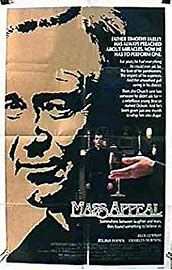Glenn Jordan’s Mass Appeal depicts American Catholicism as being a largely complacent, flaccid and hypocritical institution that strangles the few pockets of passionate and commitment that may dwell within it, but fatally undermines its ability to drive home those points by evidencing much the same faults, cinematically speaking. Jack Lemmon plays Father Farley, all too comfortably established in his Connecticut province, mostly wise-cracking his way through the sermons, dispensing shallow homilies and comforts and strategic white lies and evasions to paper over his low-level alcoholism and essential hollowness; he crosses paths with Mark Dolson, a volatile young seminarian (Zeljko Ivanek) to whom he becomes an involuntary supervisor, and, of course, his faltering attempts to shape the younger man’s path cause him to reevaluate his own. The film suggests that homosexuality is common in the church, while rendering it a distanced abstraction: two seminarians are expelled for suspected sexual contact (but we never even get to see them); Dolson admits that he’s had sex with men (but also with women, and it’s all in the past); there’s a passing suggestion (but no more than that) that Farley may also be gay. The film’s debates on these and other hot issues, such as the ordination of women, are hopelessly glib and packaged, undercutting any real sense of personal suffering or deprivation; likewise, Farley’s evolution from seeing Dolson mainly as an exasperating threat to ultimately proclaiming him as something close to the future savior of the Church, whatever the cost to his own job security, is set out in arbitrarily lurching terms. Compared to some directors of that period (see Tribute’s Bob Clark), Jordan holds Lemmon’s mannerisms in relative check, drawing out some moderately moving moments of self-awareness and breakdown, but the film’s imperfectly underlined ending doesn’t provide much to subsequently reflect on.


No comments:
Post a Comment